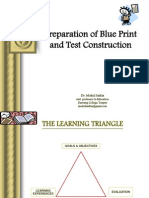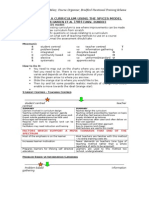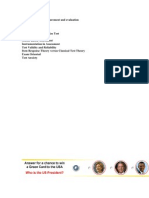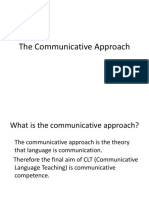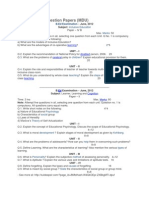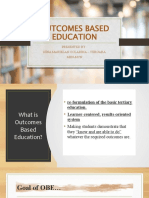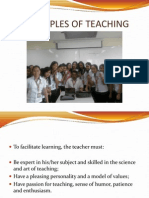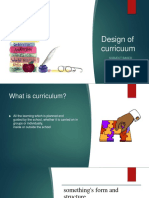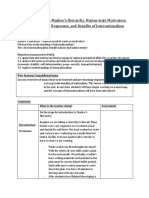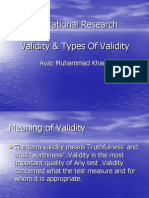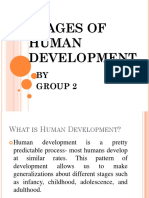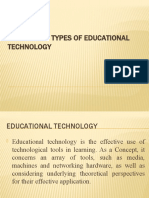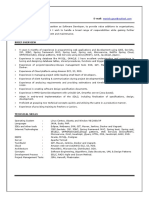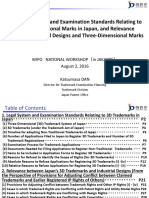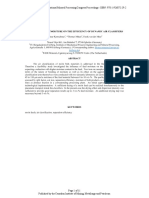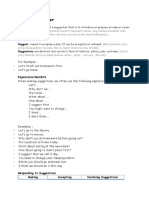0% found this document useful (0 votes)
445 views2 pagesModule 7: Outcomes-Based Education: Basis For Enhanced Teacher Education Curriculum Post-Test
This document provides a post-test on outcomes-based education concepts. It contains 16 multiple choice questions that assess understanding of key OBE terms and processes, including:
- OBE focuses on defining the learning outcomes students should achieve from a program (questions 1-3)
- Developing course learning outcomes that contribute to achieving program outcomes (questions 5-6)
- Evaluating whether intended learning outcomes were achieved, not just topics covered (questions 7-8, 14)
- Using assessment strategies like rubrics to evaluate student achievement of learning outcomes (questions 10-11)
- The importance of planning, assessment, and continual quality improvement in the OBE process (questions 12
Uploaded by
Dcarl02Copyright
© © All Rights Reserved
We take content rights seriously. If you suspect this is your content, claim it here.
Available Formats
Download as DOCX, PDF, TXT or read online on Scribd
0% found this document useful (0 votes)
445 views2 pagesModule 7: Outcomes-Based Education: Basis For Enhanced Teacher Education Curriculum Post-Test
This document provides a post-test on outcomes-based education concepts. It contains 16 multiple choice questions that assess understanding of key OBE terms and processes, including:
- OBE focuses on defining the learning outcomes students should achieve from a program (questions 1-3)
- Developing course learning outcomes that contribute to achieving program outcomes (questions 5-6)
- Evaluating whether intended learning outcomes were achieved, not just topics covered (questions 7-8, 14)
- Using assessment strategies like rubrics to evaluate student achievement of learning outcomes (questions 10-11)
- The importance of planning, assessment, and continual quality improvement in the OBE process (questions 12
Uploaded by
Dcarl02Copyright
© © All Rights Reserved
We take content rights seriously. If you suspect this is your content, claim it here.
Available Formats
Download as DOCX, PDF, TXT or read online on Scribd
/ 2
